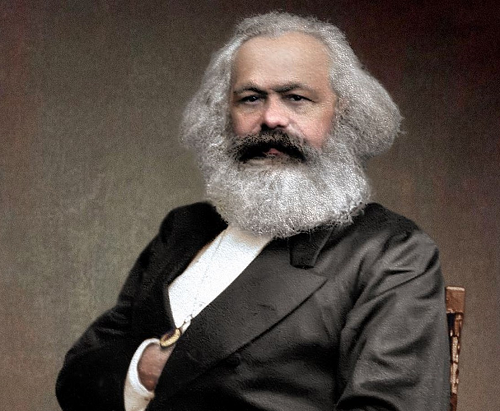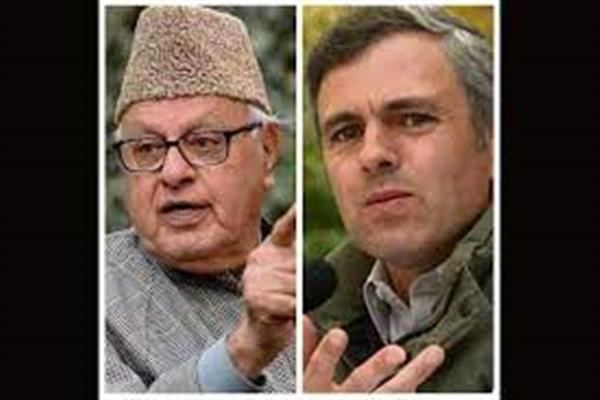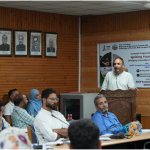Marx is undoubtedly one among those very few names in modern world who people may like or dislike but cannot afford to ignore. Any serious thinker concerned about life, religion, economics and society needs to contend with his work. In what follows, an attempt will be made to present few brief comments on his general work under two headings i.e. the things that we can learn from him and the things that he seems to miss.
What can we learn from Marx?
One of the most important insights of Marx that we can all learn from is the diagnosis of the intrusion of capitalistic over arching principle into human lives. How human beings get alienated from each other due to independent motor of capital; how human consciousness is clouded by commodity fetishism; how race for capital makes slaves out of every one of us; how community life is fractured by individualistic greed for capital; how capitalistic logic and greed intrudes into familial, societal and religious practices and pollutes sanctified organic community life and how dignity of man is damaged by a fictitious entity of “capital”.
In the age where “dinaar” becomes highest deity, where people turn into – what Prophet (SAW) described as – “abd-ud-dinaar”, we need critics like Marx who expose lifelessness of such greed and remind us of the appalling condition of the marginalized, forgotten and the downtrodden & also our basic human responsibility towards the “other”. One can note with a bare minimum observation that most of our lives are driven by transactional logic which pollutes the real quality of human life. It is far below human dignity to launch money on such a high pedestal such that an authentic, humble, sincere, open ended & compassionate way of life is crushed out of existence. Every relation is eroded by transactional logic which colors these relationships with the colour of greed, suspicion, selfishness, in-authenticity, scheming, artificiality, alienation and heartless formalism. The phenomenon of capital & its cascading effects in our fat weddings and the erosion of transparent sincere human interaction is one pertinent example. In addition to this, one cannot help but praise Marx’s almost saintly dedication to his cause; the poverty & persecution he suffered for his activism and the sacrifices he made for the life he believed in.
One can note the importance of the critique of capital by observing a conventional sitting or meet up of people in a marriage function or some other occasion that when they are done extracting “emotional pleasure” out of talking about Sahaaba (the companions of the prophet (SAW)) or some other religious topic for hours together and then at last when someone finally manages to pick up the topic of rates of oxes or trees or pieces of land or furniture, etc then suddenly one feels that it is now that the participants of the discussion have really come alive; it is here that one realizes what really enjoys prioritized importance for people. Thus, ironically, by their own actions, people seem to augment and strengthen Marx’s critique of idealistic religious discussions.
In any case, Marx’s highest contribution (particularly his later writings on capital) call upon all of us to at least ponder over the possible revisions in our economics (both production and distribution) such that it respects human dignity. If we really are conscious intelligent human beings then we can at least think of doing better in the way we produce and distribute earthly resources, in the way we care for poor/marginalized and in the way “capital” comes in between human beings and estranges them from each other.
What Marx misses
The first point to note is that the Feuerbach’s philosophy of religion (which adjudicates religion and God as nothing but alienation of human qualities, abstracted out into an external object) which Marx follows – does not apply on the deeper esoteric understanding of religion. Theology, according to traditional metaphysics, is fundamentally “autology” & thus Feuerbach’s critique does not hold. One wonders what Feuerbach would have to say to al-jili’s insan-al-kamil. Fundamentally, ontological dualism does not sustain within metaphysics which grounds theology. Any person who knows even basics of esoteric metaphysics can easily counter Feuerbach’s critique.
Secondly, one fails to understand as to how there can be any teleology in history if consciousness is not fundamental. If all there is nothing but dead matter then how can one expect a certain (anticipated) “logical” end of historical process (the arrival of communism in case of Marx); there should be total chaos or randomness. Why should reality logically/rationally respond to certain human activism/stimuli. Moreover, this is also the point that Zizek raises against Marxism in his call for movement back to Hegel where he points out the problem of self-instrumentalization of the teleological structure in Marxism. The laws of dialectic – exactly prescribing and deciphering the future is un-Hegelian.
Moreover, materialists and historicists like Marx totally neglect the mystery of the “givenness” of being/reality/wajood at the first place and simply take it for granted. Religion, as understood by metaphysicians, connects individual finite consciousness with the mystery of being from which everything emanates; this is the meaning of Holy Grail and all world mythology. Without resonating (& connecting) with the mystery of being (which is our own mystery), true “alienation” cannot be cured. One can read few basic works of Joseph Campbell to understand this point. The registration of “transcendence” is missing in Marx. No matter how much dialectic journey history covers, no matter how much ideal utopia we are able to appropriate, the very mystery of being/reality eternally slips away from our hands. We intuitively participate in being/wajood, we live in it, flow in it and have our being in it but the moment we try to arrest it in language, it escapes all formulation; this element of “baatin”/hidden/transcendent/sacred is totally missing in modern historicist materialist critical thinkers.
Moving on, we must say that what Marx mainly misses is largely hinged upon his inadequate estimation of human self/nature. Does economics and perfect social order solely determine human happiness? Although a study of larger corpus of Marx might not support the claim that Marx held such simplistic ideals but let us consider this point as it is for the sake of argument. What actually is human being? What about irrationalities within? All the resentment, malevolence, meaninglessness do not simply go away by a changed socio economic structure. Human being is not mere body but deeper psyche and spirit. Marx’s critique, being in the tradition of Darwinian thinkers like Nietzsche and Freud, is all about digging for deeper substructures of human reality; the question is does he go deep enough? Jung, Dostoevsky, Rumi, Ibn Arabi & their likes deserve more attention on this point.
One needs a total shift of consciousness; an enlightening metaphysical insight into the whole drama of life that alters one’s state of being which leads to repose of being (joy). Mere material well being does not guarantee total well being of individual. Deeper science of self is indispensable in all societies for all times whether pre revolution or post revolution. The deeper questions of meaning, inner malevolence, suffering, purpose & joy need deeper metaphysics/irfaan (a sort of man wa salwa) and not mere plate of rice. Man is not mere belly but pure intelligence/awareness and cannot be satisfied but by metaphysics/irfaan which stems from the faculty of nous/intellect/ayn-al-qalb which roots man in reality itself. (This point needs proper elaboration which can be found in the explanation of the notion of “intellect” given by 20th century Traditionalist school).
Towards the conclusion, one recalls Dostoyevsky’s comment that evil is not solely outside in the material conditions; even if we convert social reality into kingdom of God – the evil within, resentment, meaning crises, malevolence does not simply go away; the evil/shadow/negativity within (if not attended to by deeper sciences of self) will spread havoc even if material conditions are fulfilled to its fullest.
(Author has done masters in Philosophy from JNU Delhi. He writes regularly for RK and can be reached on: [email protected])








